Submitted by WA Contents
Rongbaozhai Coffee Bookstore is changing the mode of reading by mixing it with coffee house
China Architecture News - Aug 20, 2015 - 12:06 7489 views
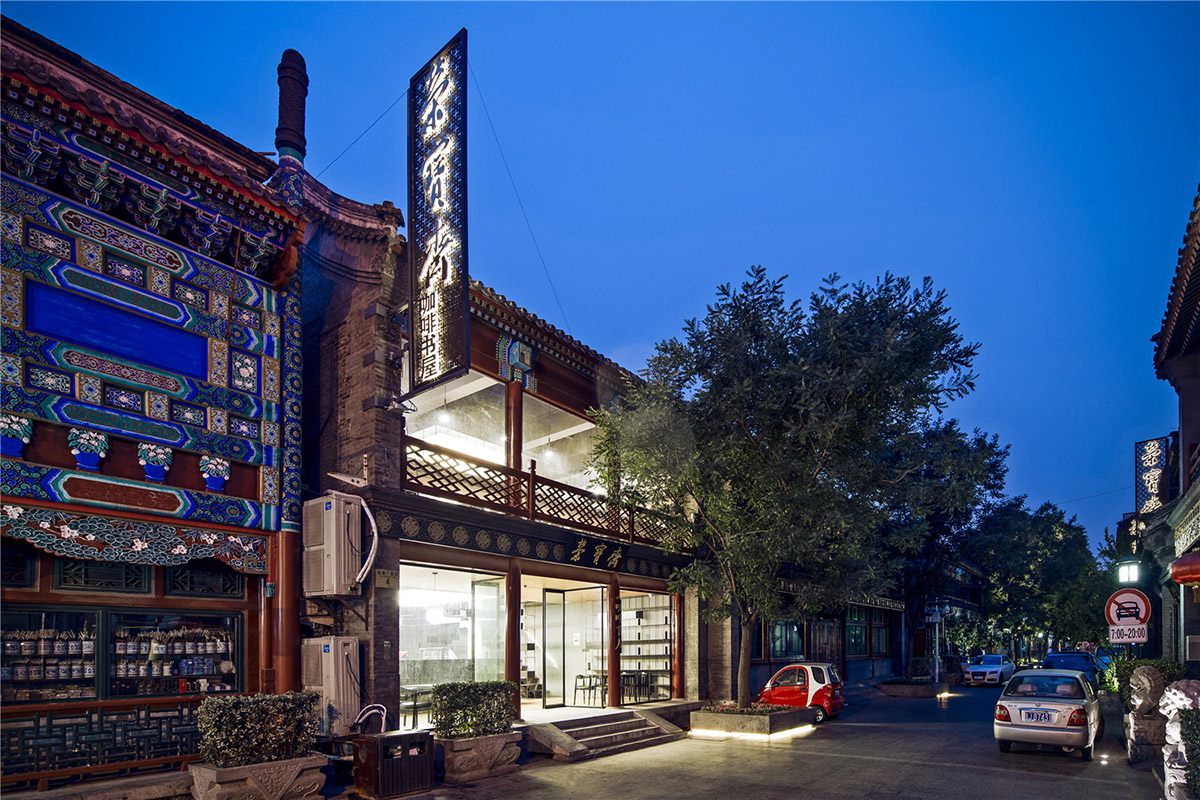
all images © Wang Ning
Arch Studio designed a small bookstore is mixed with coffee house and changing the way we read the books- this small bookstore triggers visitors in terms of its contemporary, elegant, transparency and green look inside. The project is located in a well-known street in Beijing called Liulichang, which originally was a book store and selling Chinese painting, calligraphy publications, and ancient books. This book store was a pseudo-classic architecture, and was built in the 80s century by the government unified construction.
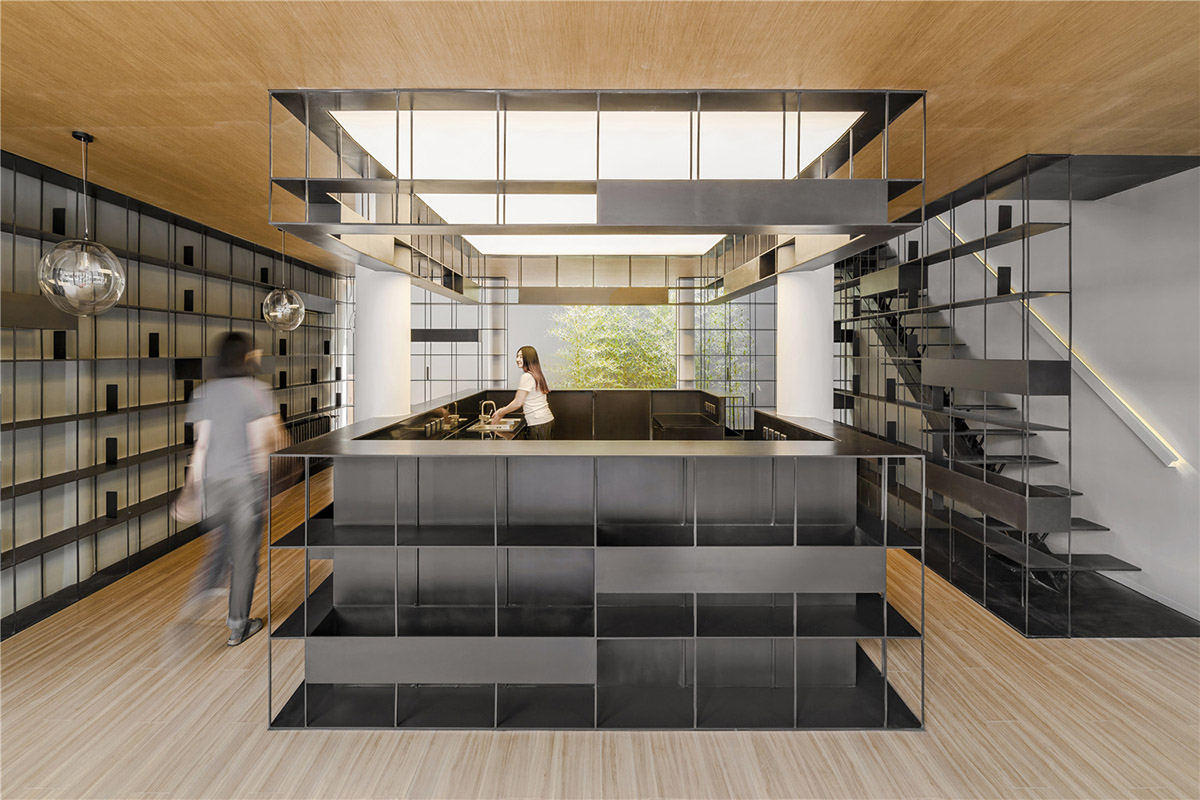
1st floor and shelves
The book store was a two story building with a basement. The total construction area is about 300 square meters. In today's information era, the single mode of previous bookstores cannot attract readers any more. How to upgrade traditional bookstores is a problem that each bookstore operator thinks about.
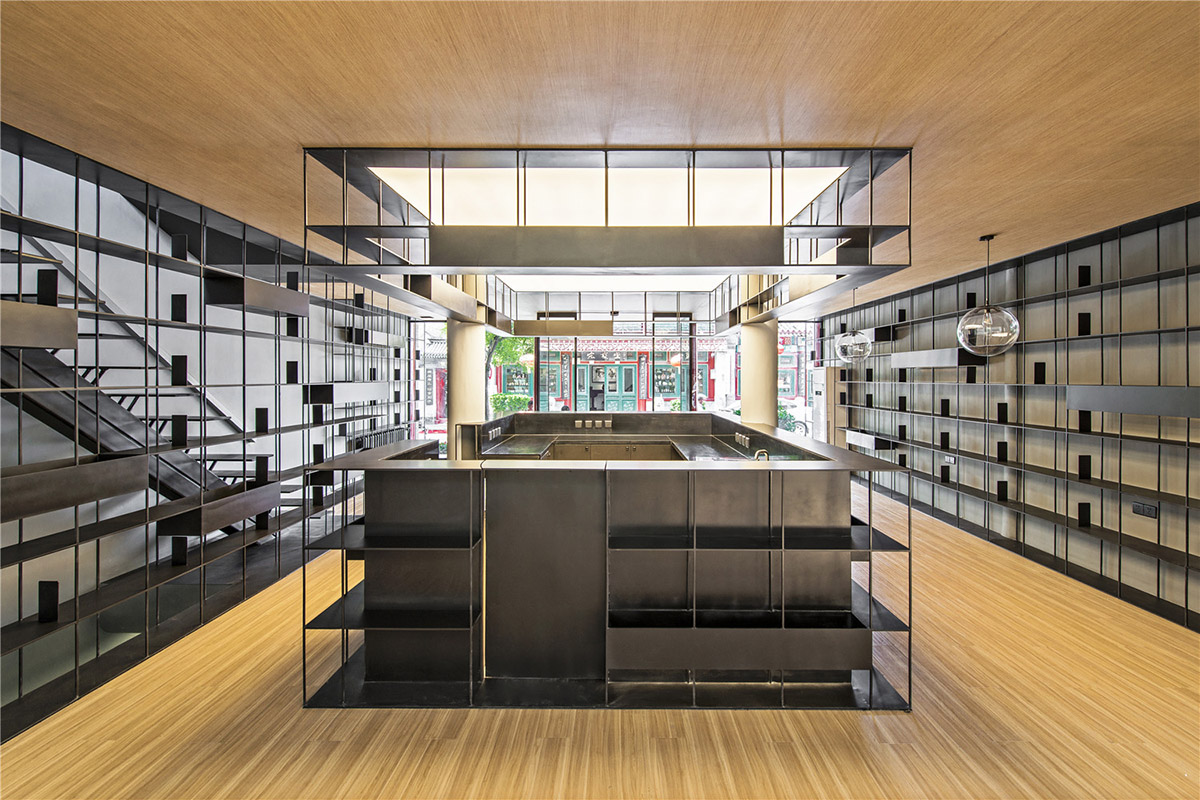
1st floor and shelves look like an art pieces without books
Rongbaozhai (studio of glorious treasures) coffee bookstore is trying to mix bookstore with coffee house and attract more readers with its compound management model and diversified experiences. Accompanied by a cup of fragrant coffee, people communicate with others, books and nature, creating a relaxing and comfortable reading environment with slow rhythm.
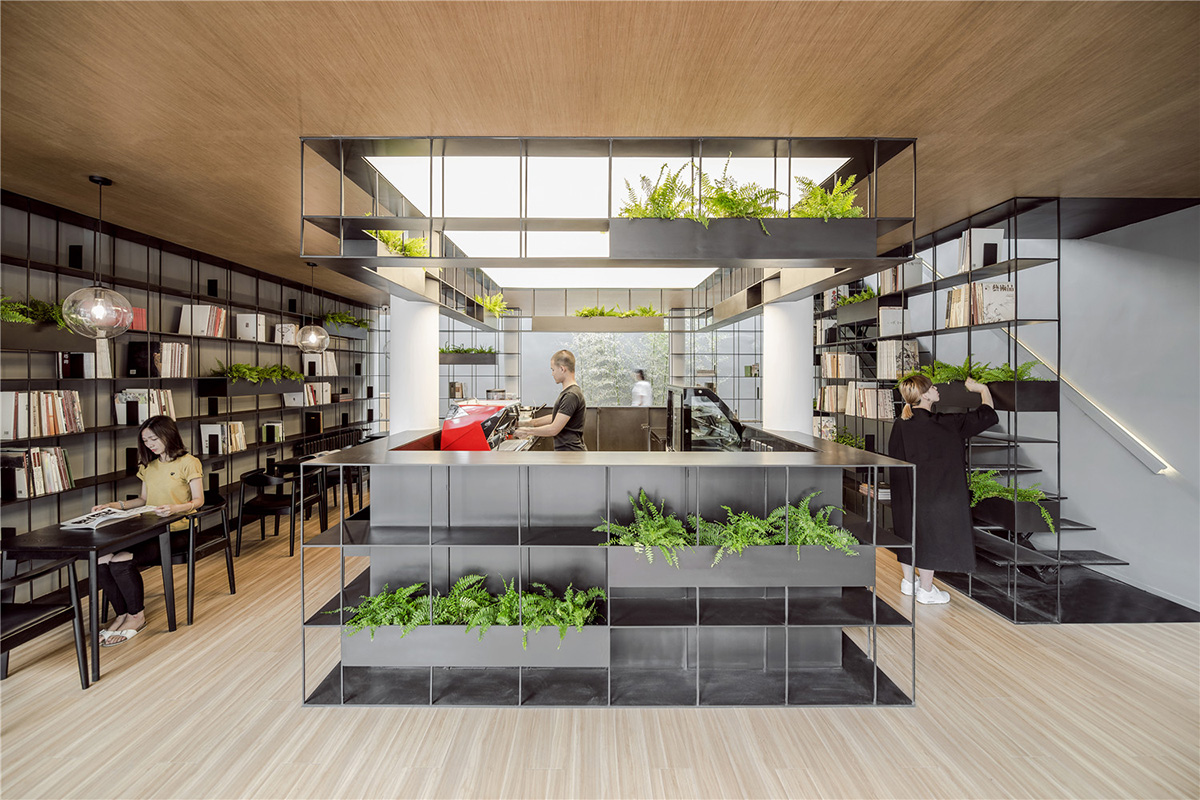
1st floor with green spaces inside makas a comfortable and light space
In order to change the heavy and rigid images of traditional bookstores, new designs use transparent and lightsome iron book shelves to integrate functions, transportation, equipment and illumination and put green plants in the stores to make their internal space more continuous and open as well as full of vitality. Based on the original pole net of the building, the inside turns out to be a ring-like space structure: the central district is island-style space surrounded by iron bookshelf walls.

detail view from shelves
The central island on the first floor is used as cashier desk and coffee operating table; the second floor is the meeting room-a shiny box enclosed by switchable glass. The switchable glass can modify internal and external transparent state to make the meeting room more flexible for use. With soft membrane ceiling, the center island has a homogeneous integral illumination, which is just like indoor lanterns, and the coffee booths are interspersed around the center island.

1st floor and coffee area in the middle of space
The iron bookshelves use 1cm*1cm solid iron bars as vertical supports, and 1cm*30cm iron plates as layer boards. They are completed by use of laser incision to cut incisions of stand columns in each layer, which are then welded from bottom to top. Plants between the iron bookshelves can make readers sense the nature, meanwhile they can effectively adjust indoor microclimate.
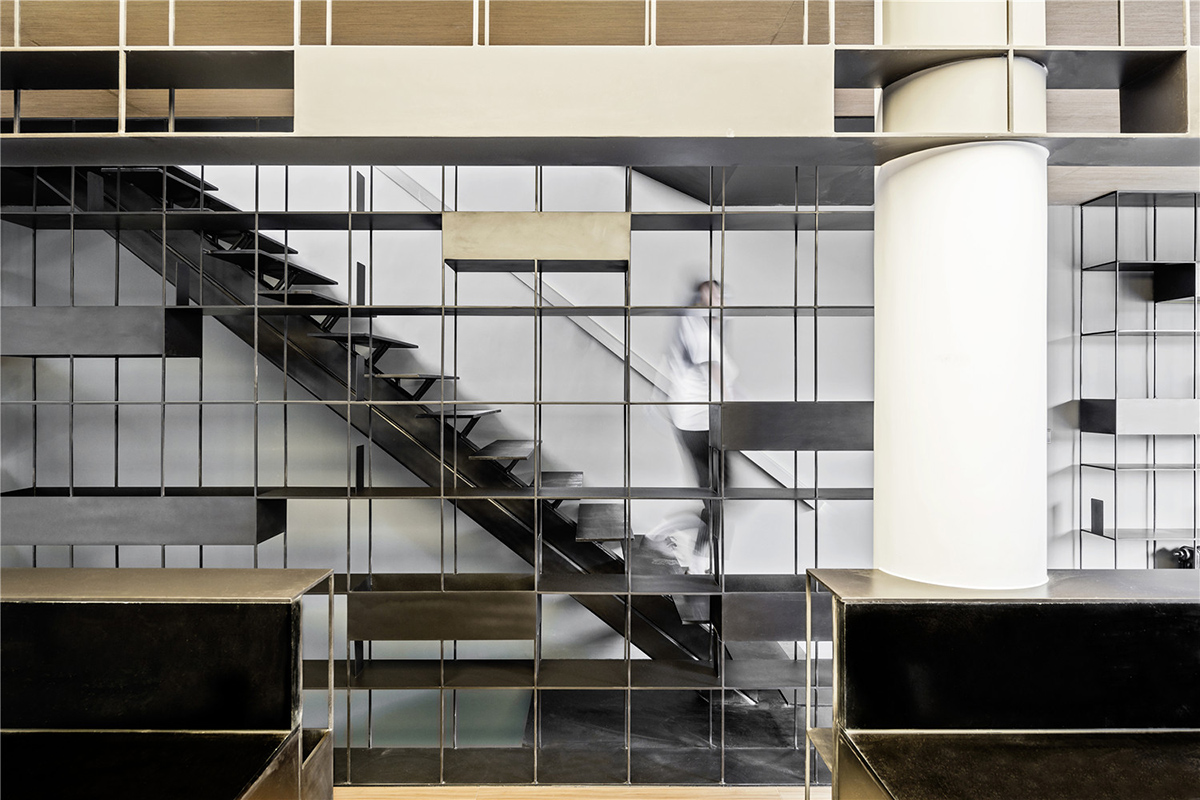
LED light strips are installed at the bottom of the plant boxes, which can provide readers with indirect illumination. Sciophilous ferns are the primary choice of indoor plants and the high plant boxes are furnished with climbing shrubs. Herbs such as mint and pelargonium odoratissimum are placed in front of the windows and on the coffee tables.

The coffee bookstore will become a new leisure place for people after shopping in the Azure Stone Workshop. Sitting peacefully therein, people are coexisting with the coffee, books and plants. The indoor space has been weakened into an environment background where people's experience and feelings are motivated.
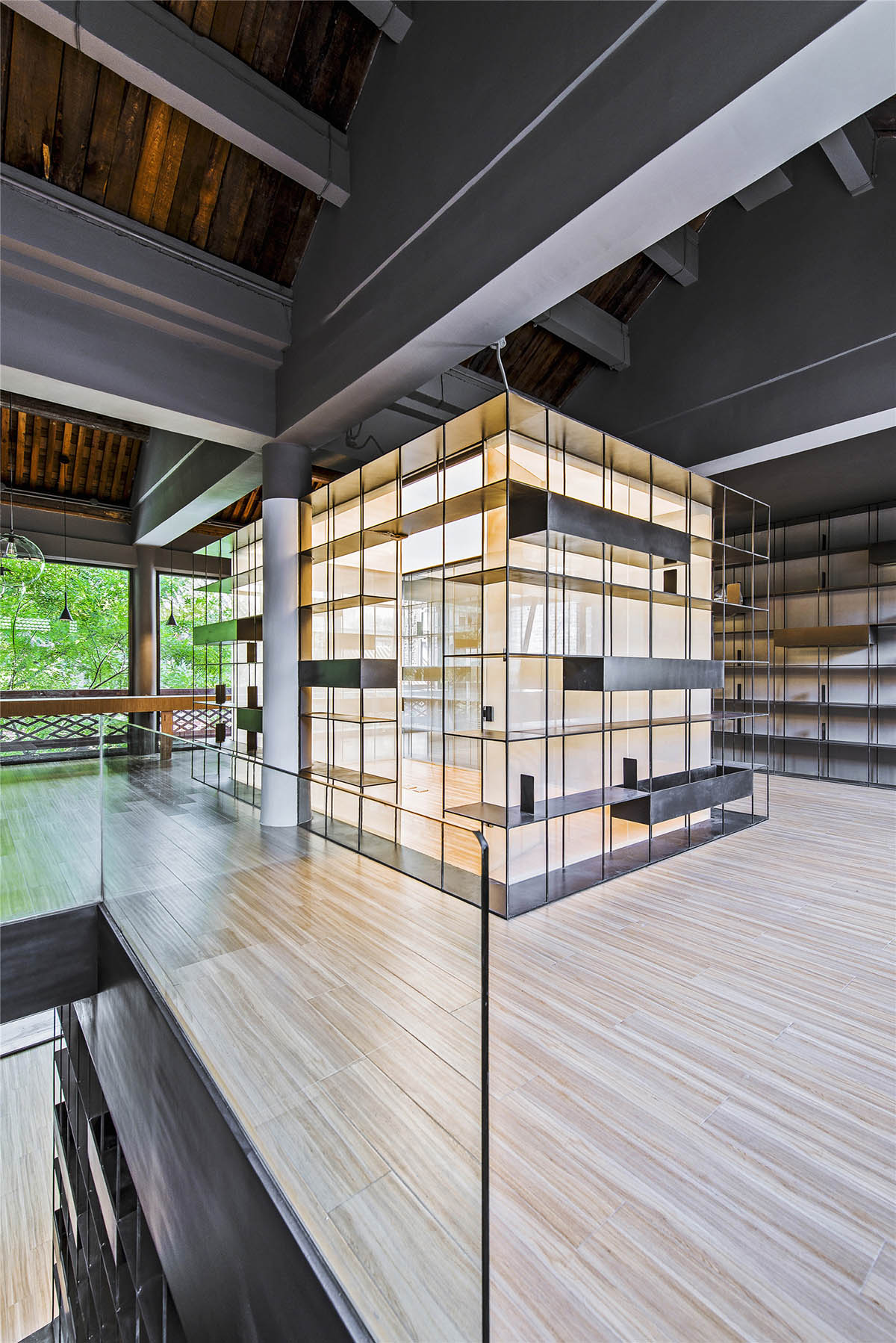
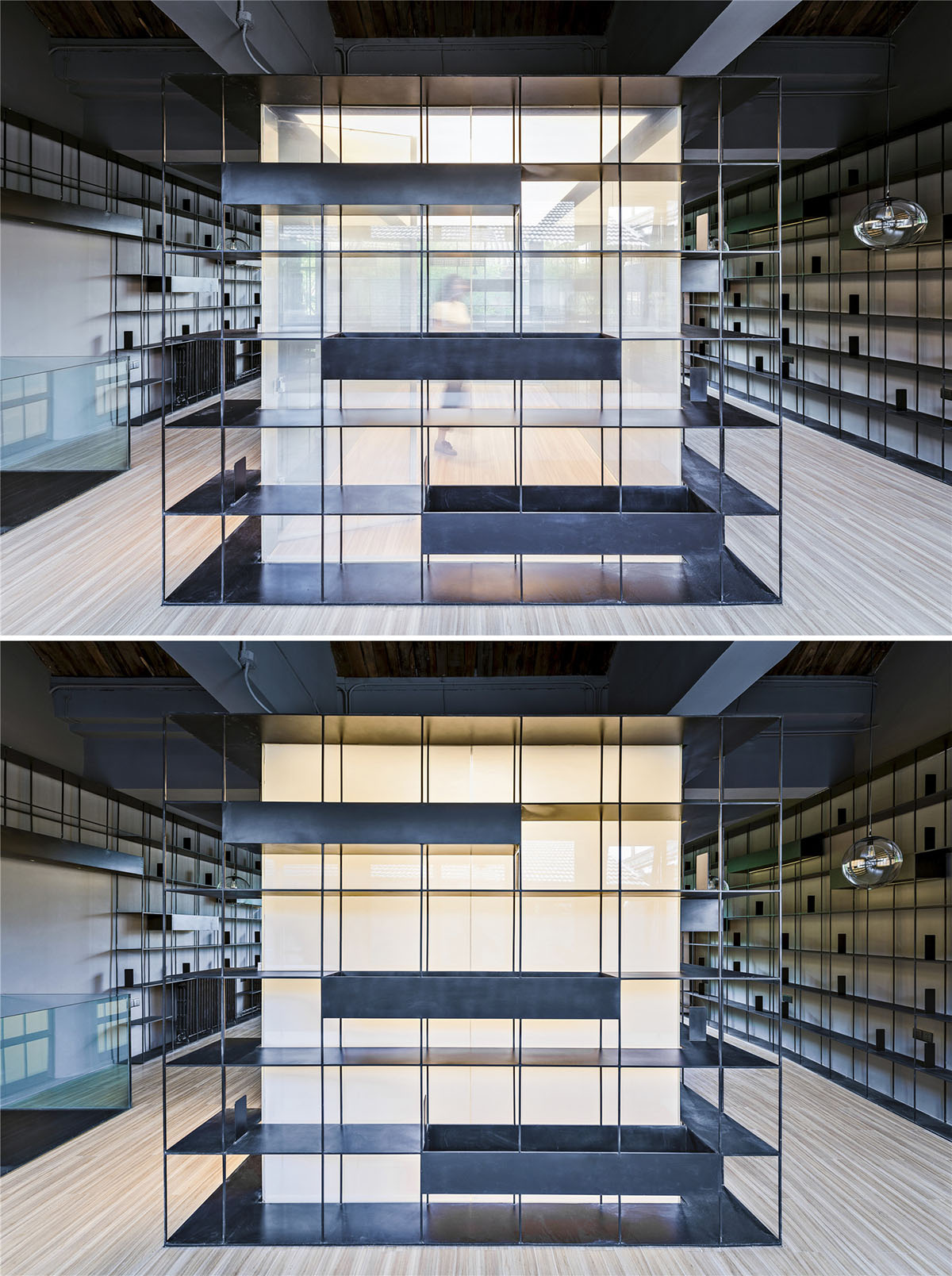
meeting room
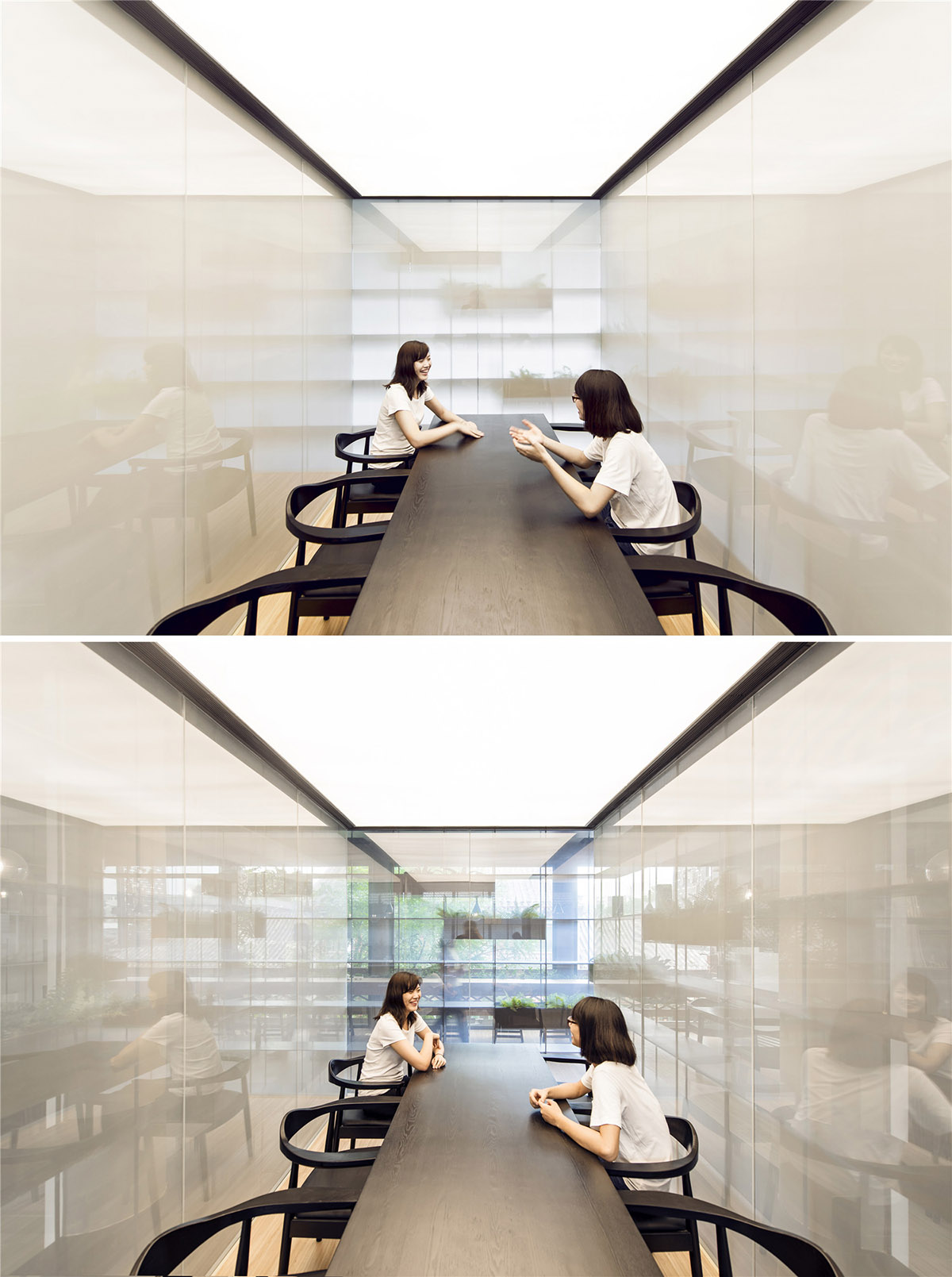
meeting room-2
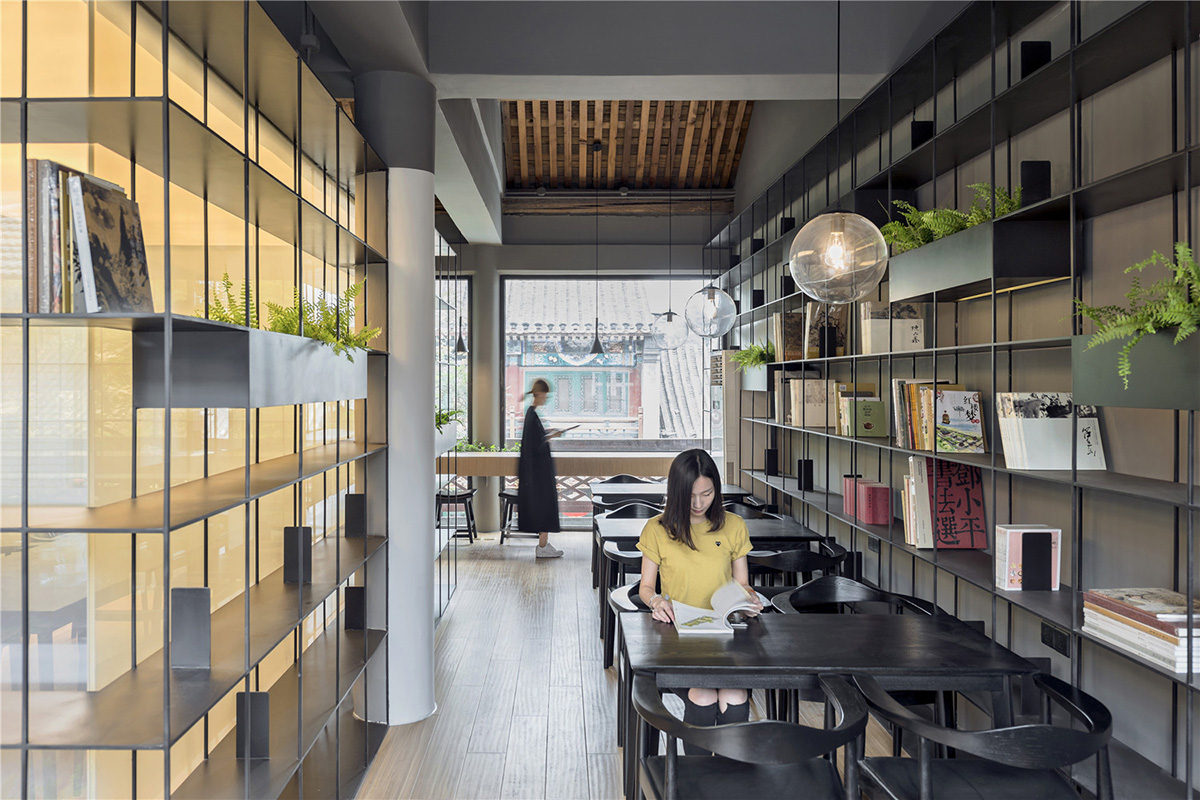
2nd floor
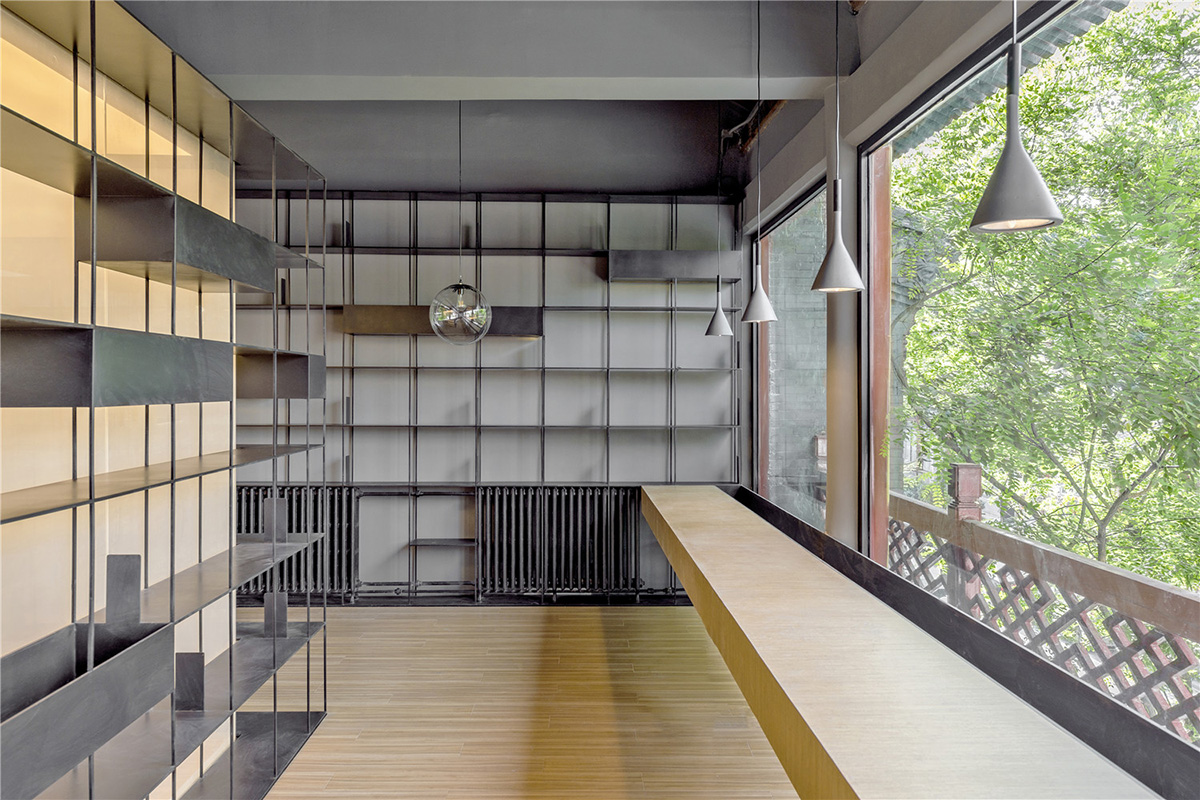
2nd floor
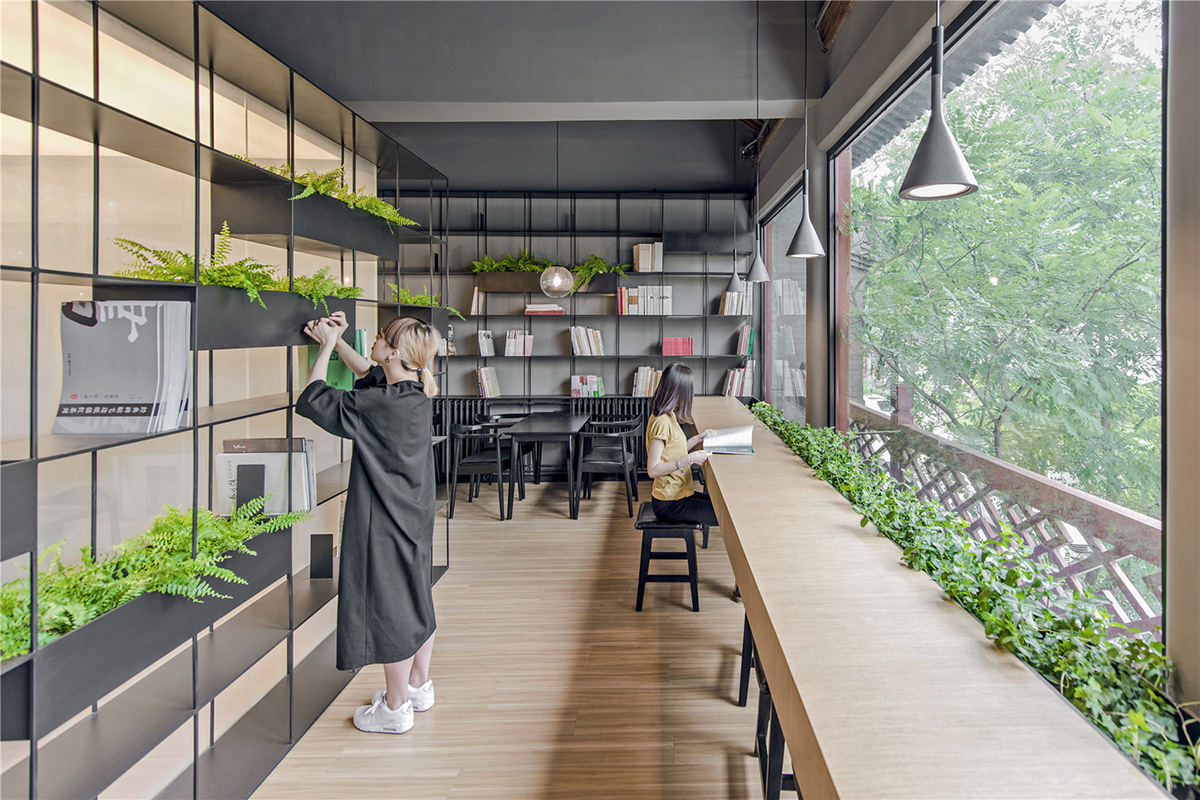
2nd floor
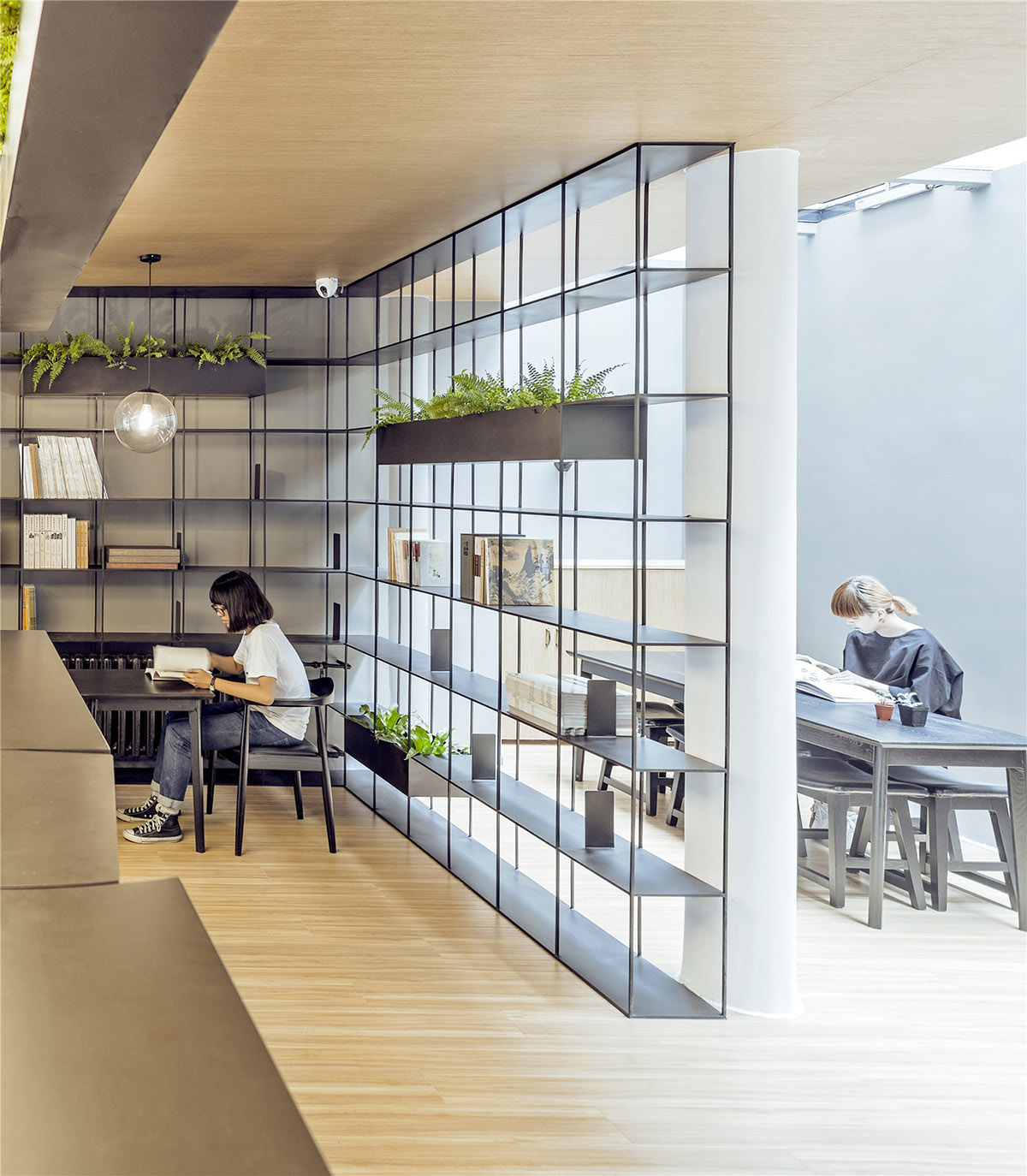
1st floor
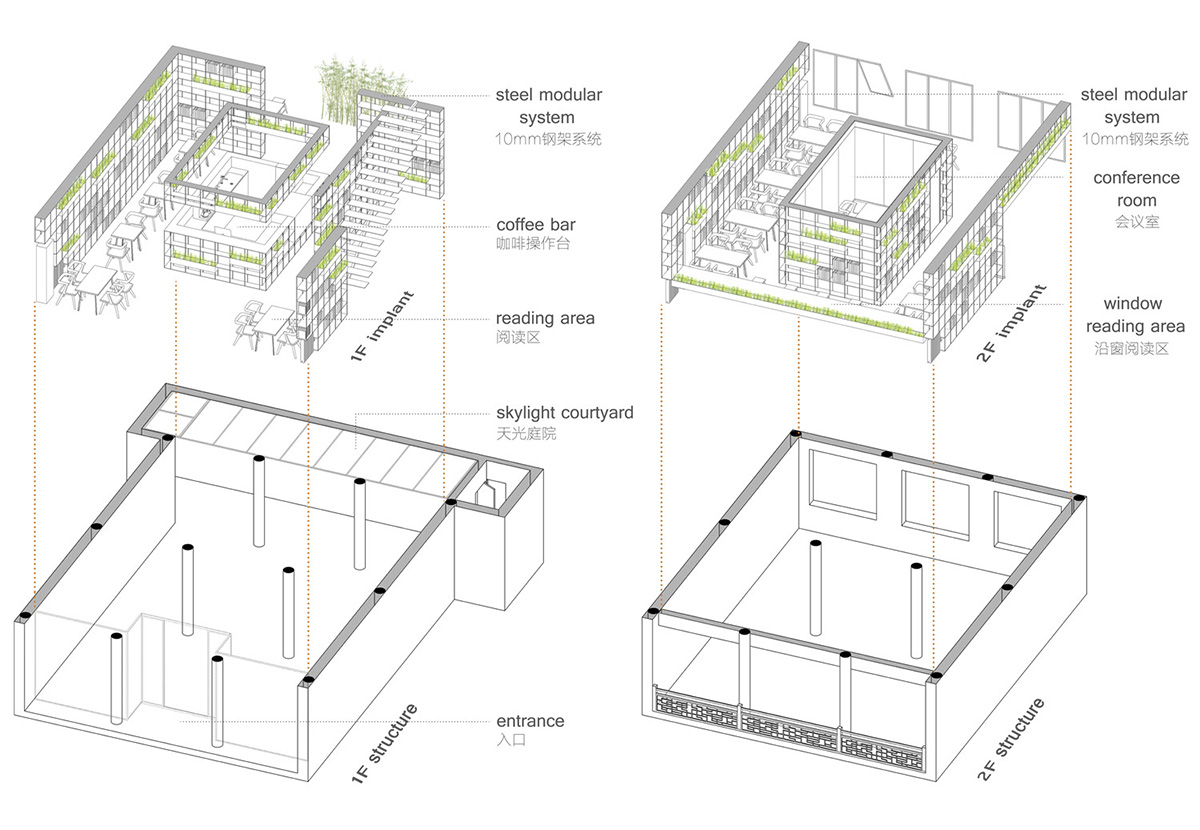
contstruction drawings

1st floor plan

2nd floor plan
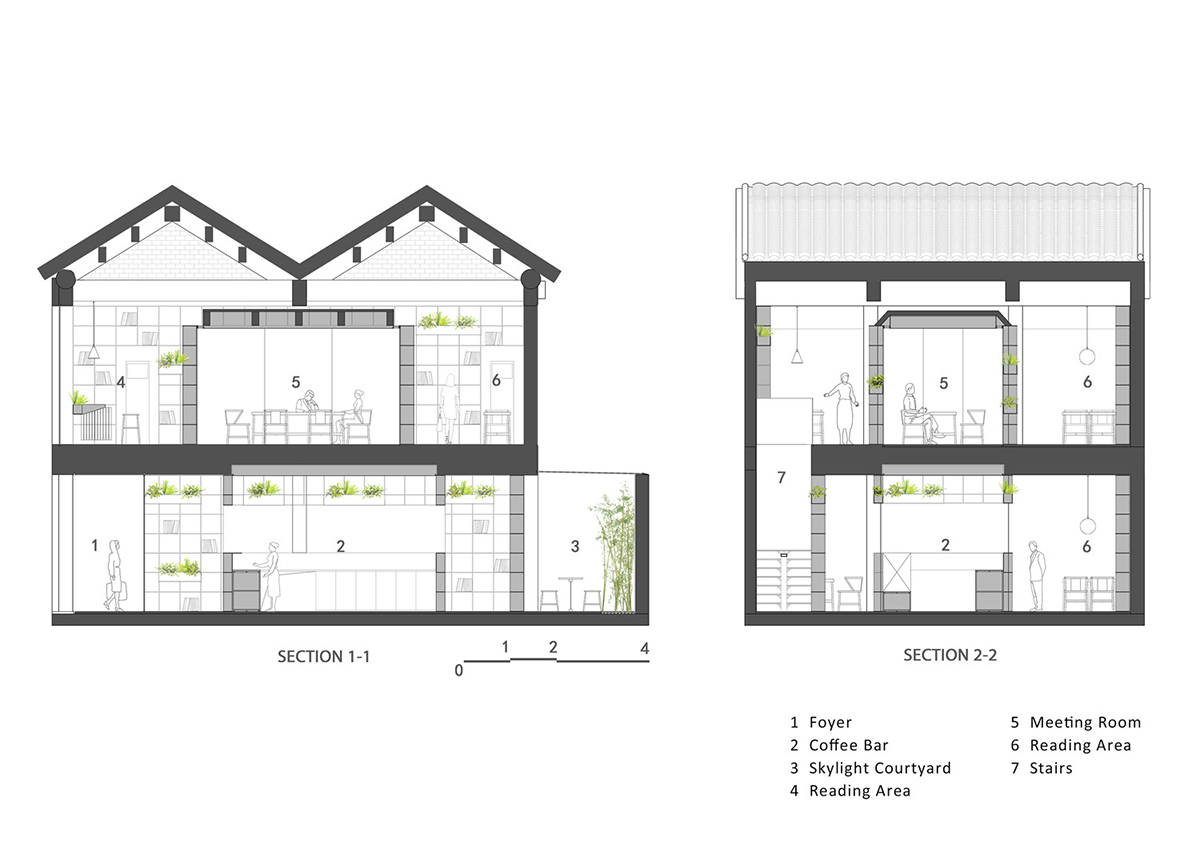
section

materials information
Project Facts
Project Name: Rongbaozhai Coffee Bookstore
Project Address: Beijing, Xi Cheng, Liu Li Chang
Project Type: Interior Design
Construction Area: 293 m2
Designing Time: 2105.01-2015.02
Construction Time: 2015.03-2015.06
Major Materials: Steel Panel, Switchable Glass, Wood Flooring
Major Designer: Han Wen Qiang
Design Team: Yang Bin Lin, Huang Tao, Li Yun Tao
> via Arch Studio
